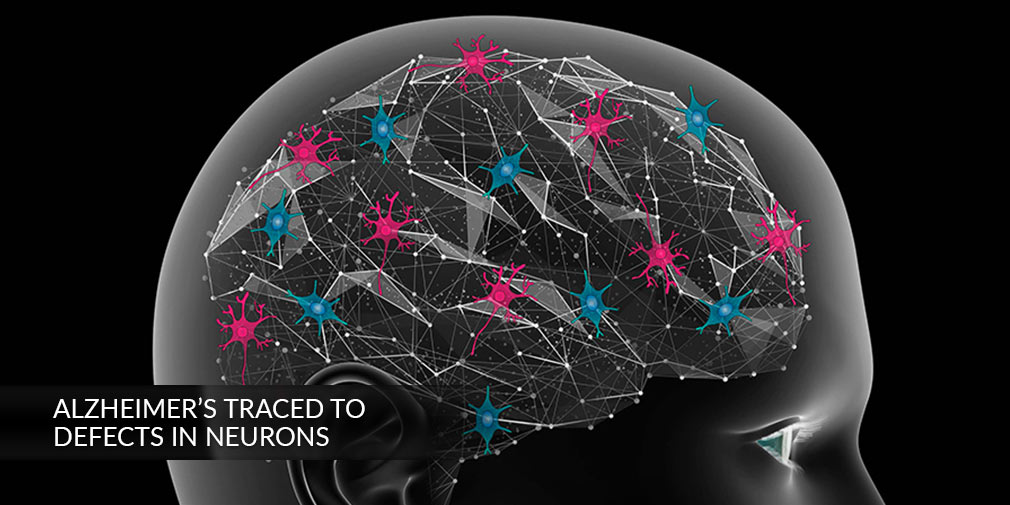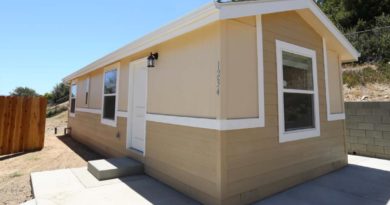Daily Business Report-Nov. 17, 2020
Alzheimer’s neurons mechanisms. (Courtesy UC San Diego)
Neurons stripped of their identity are hallmarks
of Alzheimer’s disease, study finds
Researchers at the University of California San Diego have identified new mechanisms in neurons that cause Alzheimer’s disease. In particular, they discovered that changes in the structure of chromatin, the tightly coiled form of DNA, trigger neurons to lose their specialized function and revert to an earlier cell state. This results in the loss of synaptic connections, an effect associated with memory loss and dementia.
The findings are published Nov. 13 in Science Advances.
The study was founded on the question: how do neurons in patients with Alzheimer’s disease differ from neurons in healthy individuals?
“It’s a fundamental question that would provide the framework and foundation for understanding Alzheimer’s disease at the cellular level, and thus pave the path for novel therapeutic approaches,” said Shankar Subramaniam, professor of bioengineering at the UC San Diego Jacobs School of Engineering.
______________________________________________
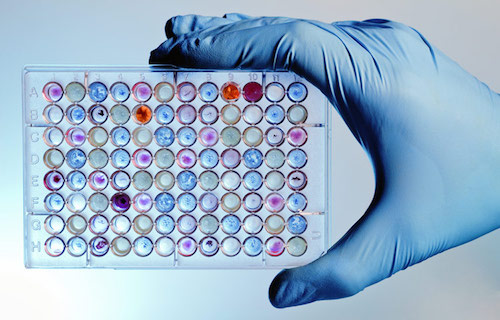
Personalized drug screens could guide
treatment for children with brain cancer
Scientists at Sanford Burnham Prebys Medical Discovery Institute, University of California San Diego School of Medicine and Hopp Children’s Cancer Center Heidelberg
have demonstrated that personalized drug screens can be used to identify new therapeutic candidates for medulloblastoma, the most common malignant brain cancer in children. The approach measures the effectiveness of therapeutics using tumor cells obtained from a biopsy and can be performed in a few days—making it one of the quickest sources of information used in clinical decision-making.
Based on this proof-of-concept study, which was published in Cancer Research, a clinical trial using the approach is now planned.
“Our findings show that personalized drug screens can help us move away from a one-size-fits-all approach to treating medulloblastoma patients,” says Robert Wechsler-Reya, Ph.D., corresponding author of the study, professor and director of the Tumor Initiation and Maintenance Program at Sanford Burnham Prebys, and program director of the Joseph Clayes III Research Center for Neuro-Oncology and Genomics at the Rady Children’s Institute for Genomic Medicine.
______________________________________________

Decline in holiday spending detailed
by JLL’s Retail Holiday Shopping Survey
The decline in holiday-related spending plans is being fueled by the 44.0 percent of shoppers who plan to spend less than they did in 2019, according to JLL’s Retail Holiday Shopping Survey.
The fact that a little less than half of shoppers are cutting their budgets is consistent with spending trends since the start of COVID-19. When retail stores temporarily shuttered in March and April and consumers stayed home, there was a clear shift towards essentials like groceries and health supplies, and a reduction in discretionary spending on entertainment, dine-in restaurants, apparel and department stores. While the economy has seen improvement since then, consumers remain relatively conservative due to continued uncertainty, and are choosing to do more of their shopping online, or via curbside pickup or BOPIS. They are also still largely focusing on essential purchases like food and CPG goods, and on new essentials, like home
décor, improvement, furniture and electronics. This trend may be even more pronounced as we head into winter and consumers are forced to stay indoors more.
Highlights:
- The per-person average holiday budget decreased 20.5 percent from last year: $873 (last year, pre-COVID) to $694 this year.
- While slightly fewer consumers will shop in-store this year, the percentage of consumers who plan to shop at a pure-play online retailers like Amazon rose over 16 percentage points year-over-year to 58.5 percent.
- Shopping will begin early, and consumers will look for deals throughout the season
______________________________________________
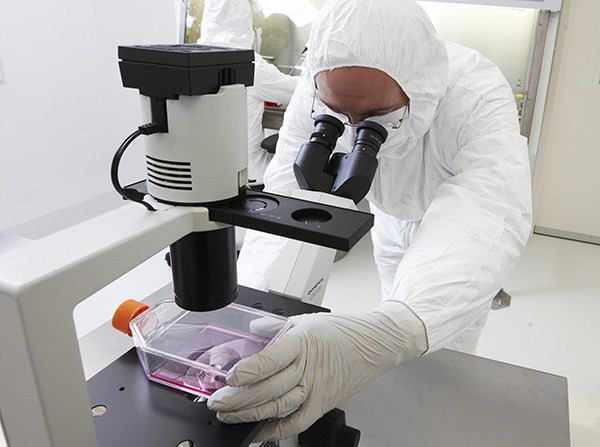
Prop. 14’s passage gives lifeline
to California’s cash-strapped stem cell agency
CalMatters
Prop. 14 passed with 51 percent of voters in support and 49 percent against, notching the narrowest victory margin of California’s 12 statewide propositions.
By approving Prop. 14, voters extended a $5.5 billion lifeline to California’s cash-strapped stem cell agency so it can continue funding research into treatments for Alzheimer’s, Parkinson’s, cancer, spinal cord injuries and other diseases.
Voters also gave themselves a $7.8 billion bill — $5.5 billion plus interest — to be paid back over the next 30 years. While Prop. 14’s supporters say the money will help the California Institute for Regenerative Medicine develop and fund life-saving therapies while stimulating the economy, opponents question the wisdom of taking on billions of dollars in debt in the middle of a recession.
Robert Klein, former CIRM chairman and Prop. 14 backer: “We have to have this funding to go forward. We can’t attract and hold the best scientists in the world unless we can show them that the therapies they work on are going to actually be able to get to patients.”
John Matsusaka, a USC economist: “This is money that’s channeling into … highly skilled white collar workers who are very fully employed already. … It’s hard for me to see how pouring money into this could have a stimulating effect.”
______________________________________________
USD’s undergrad study abroad ranking
rises to second in the nation
The University of San Diego’s ranking for undergraduate participation percentage in study abroad climbed to No. 2 in the nation according to data in the Institute for International Education’s 2020 Open Doors Report on International Educational Exchange.
This 2020 ranking, based on USD’s estimated participation of 83.8 percent for the 2018-19 academic year, is for the category of the Top 40 Doctoral Universities.
“This is very uplifting news, but also bittersweet, since we have had to cancel so many international experiential learning experiences (in 2020) for our students, including study abroad, due to COVID-19,” said Denise Dimon, USD’s associate provost for international affairs and professor of economics in USD’s School of Business. “But it shows the wonderful foundation that we have at USD to support our students with international experiences and we will be ready to move forward post-pandemic.”
______________________________________________
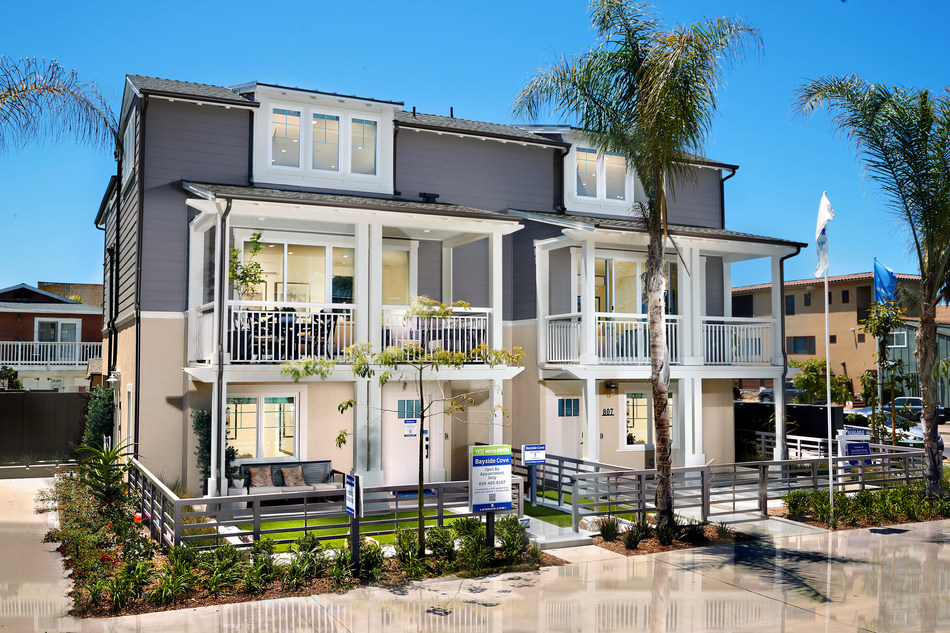
New Bayside Cove townhomes open
homebuilder Lennar is now selling at Bayside Cove, an exclusive collection of new townhome designs “between the beach and the bay” — steps from the Pacific Ocean and Mission Beach to the west, and popular Mission Bay to the east.
Home shoppers at Bayside Cove can select from 13 floorplans ranging in size from 1,177 to 1,571 square feet, and with two to three bedrooms and two to three-and-a-half baths. All homes feature a front patio and open concept interiors with generous living spaces, center-island kitchens and spa-inspired owner’s suites. Outdoor deck and bonus room options are available in select residences.
Bayside Cove is located at 809 Santa Barbara Place. For more information, call (858) 465-6107 or visit the Bayside Cove Community Website or www.lennar.com.
______________________________________________
ImageWare Systems closes $11.56 private
placement of Series D convertible preferred stock
ImageWare Systems Inc., a leader in biometric identification and authentication, announced that it has closed a $11.56 million private placement of Series D convertible preferred stock. The company also announced the simultaneous restructuring of certain of its outstanding preferred stock and its Board of directors, leaving Kristin A. Taylor, president and CEO, on the board and appointing James (Jim) M. Demitrieus and Benjamin (Ben) Smeal effective immediately. Taylor has also been appointed chair of the board.
“For the first time in its long history, ImageWare now has updated, ready-to-market product offerings to address a large and growing market, and upgraded its senior management team by recruiting impact players with demonstrated success,” said Taylor.
______________________________________________
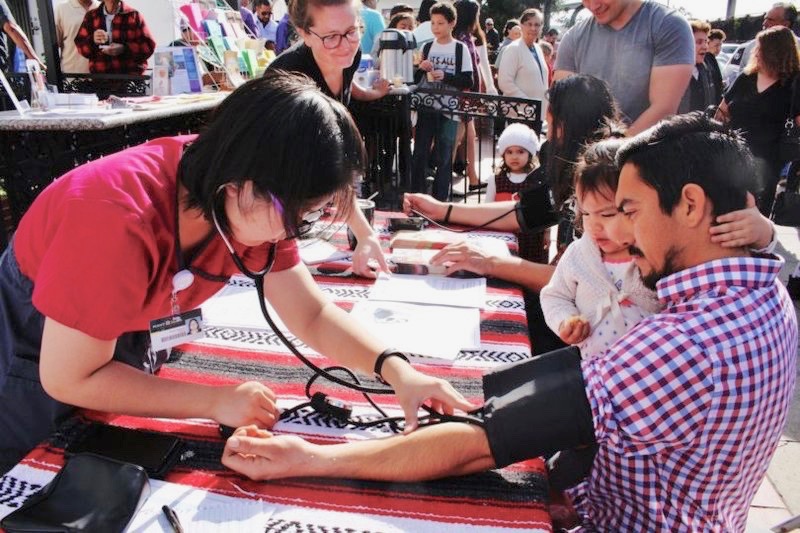
State Association of Counties recognizes
five innovative San Diego County programs
Five San Diego County programs were chosen by the California State Association of Counties for 2020 Challenge Awards, highlighting innovation among programs developed and implemented in county government.
San Diego County received the second most awards this year. Los Angeles County received seven. In total, 49 programs from 25 counties were awarded this year.
The Love Your Heart, Heart Health Awareness program received a Challenge Award in the Health and Human Services category.
CSAC also gave a Merit Award in the same category to two county departments for its Stopping the Incarcerated Homeless Mentally Ill Cycle program: the Health and Human Services Agency, Housing and Community Development Services and the Public Defender’s Office collaborated to provide housing navigation to individuals in custody.
The Probation Department’s Promoting Youth Success with Alternatives to Detention Program earned a Merit Award in the Administration of Justice and Public Safety Category.
The Virtual Recreation Center program received a Merit Award in the Government Finance, Administration and Technology category.
The Accessory Dwelling Unit Program accepted a Merit Award in the Housing, Land Use and Infrastructure category.
______________________________________________
Coaster to expand rail service to
San Diego Convention Center
A study released by the North County Transit District outlines plans to extend the Coaster commuter rail service to the San Diego Convention Center within the next five years. Extending rail service to the Convention Center will have a number of benefits for riders, the environment, and the economy.
“It will take people farther into the heart of San Diego… Providing easier access to entertainment (such as) the Gaslamp District and Petco Park,” said NCTD Executive Director Matt Tucke.
Although the Convention Center is only eight-tenths of a mile away from the Santa Fe Depot, the existing freight tracks need improved street crossings, better signals, and other infrastructure improvements to accommodate passenger trains. Completion of the Convention Center train station is part of a package of related “mid-term” improvements expected to cost about $380 million, most of which is expected in a grant from the California Transportation Commission.
______________________________________________
Attorney Cricket Tryon joins Schaffer Family Law Group
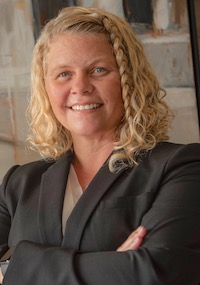
Cricket Tryon, who has joined Schaffer Family Law Group, has been helping families solve their disputes for over a decade. Prior to joining Schaffer Family Law Group, she owned and operated her own law firm where she focused her practice almost exclusively on family law.
In addition to practicing law, Tryon is an active member of the San Diego community. Her volunteer experience includes serving as an advocate for victims of domestic violence through the YWCA of San Diego, acting as a volunteer attorney for legal clinics in San Diego, and serving as a referral attorney for the American Bar Association’s Military Pro Bono Program. She also harvests her hair, donating to Wigs for Kids as soon as it reaches the required fourteen inches.
“We are excited to have Cricket join our team here at Schaffer Family Law Group,” said Sarah T. Schaffer, managing partner. “Her down to earth style and compassionate nature, coupled with her years of family law experience, make her a great fit with our firm.”
______________________________________________
Responsible Residential to
develop Carlton Oaks Townhomes
JLL Capital Markets announced that it has arranged $3.45 million in construction financing for the 10-unit Carlton Oaks Townhome development in East San Diego County.JLL worked on behalf of the borrower, Responsible Residential, to secure the loan through a private lending source.
The for-rent townhome community will consist of two three-story buildings with 14,777 square feet of rentable area. Each townhome averages 1,477 square feet and includes three bedrooms with three-and-a-half baths and features a two-car garage – also pre-wired for electric vehicle charging – en-suite bathrooms for all bedrooms, stacked in-unit washer and dryer, stainless-steel appliances, chrome and brushed nickel fixtures and carpet and luxury vinyl flooring with some units including balconies and personal patios.
Carlton Oaks will be located on the northeast corner of Carlton Oaks Drive and E. Heaney Circle in Santee.
The JLL Capital Markets team representing the borrower was led by Director Chris Collins.
Bezos Earth Fund donates $30 million to Salk
Institute for innovative climate change research
Salk’s Harnessing Plants Initiative (HPI) will receive $30 million from the Bezos Earth Fund to advance efforts to increase the ability of crop plants, such as corn and soybeans, to capture and store atmospheric carbon via their roots in the soil.
This work will explore carbon-sequestration mechanisms in six of the world’s most prevalent crop species with the goal of increasing the plants’ carbon-storage capacity. It complements an ongoing HPI project focused on identifying genes for increased carbon sequestration in model plants and then utilizing those genes to enhance carbon sequestration in crops.
“The Bezos Earth Fund’s generous donation will help realize an exciting new HPI research program that significantly increases our scientific efforts towards the ultimate goal of utilizing crop plants to mitigate the effects of climate change,” says Salk President and Professor Rusty Gage.
Plants have immense potential to remove excess carbon from Earth’s atmosphere to help respond to our warming planet. The Bezos Earth Fund grant will enable Salk scientists to advance work in plant genetics, genomics, and biochemistry—and use the power of plant diversity—to develop global crops that will increase the amount of carbon removed from the atmosphere and store it deep in the earth’s soil.
Members of the HPI leadership team include Salk faculty members Wolfgang Busch, Joanne Chory, Joseph Ecker, Julie Law, Todd Michaeland Joseph Noel.

